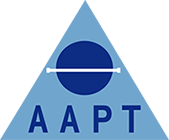The AAPT CPD scheme CPDMe
AAPT CPD Portfolio with CPDMe
The AAPT provide an on-line CPD portfolio platfom with CPDMe for all members, regardless of membership class and job grade. If a member of the AAPT you should receive an access email and please do contact the AAPT office if no email has arrived or if you have any issues with the platform.
The on-line CPD portfolio enables AAPT members to:
- Keep a continuous CPD diary of activities undertaken
- Use the diary for the planning for future CPD
- Access recorded CPDMe webinars
- Link to the Science Council and Academy for Healthcare Science CPD standards
- Reflect on each and every CPD activity undertaken
- Upload documents for each CPD activity - as both evidence and for reference
What is Continuing Professional Development (CPD)?
CPD enables AAPT members to sustain, refresh and improve their knowledge and practice. Recording professional training and experiences demonstrates improvements in standards, skills and services, and reflects on the individual’s commitment to patient care and personal development.
It is the personal duty of any professional to keep their knowledge and skills up to date so that they remain competent to practise.
The AAPT encourages APT staff to maintain, improve and extend their knowledge, skills and practice.
The AAPT CPD platform is free for all members regardless of grade.
The AAPT believes that CPD be self-regulated although participants might wish to plan their CPD activity in accordance with employers and service delivery.
The AAPT provides on-line learning for members in The Learning Zone of the Members Area. This CPD activity is called “Read, Test and Reflect” (RTR), and has the advantage over other formal and educational CPD as it does not require attendance at meetings or events.
Within the RTR domain, you will find multiple-choice questions based on articles, guidelines and publications that should be accessible to APT staff. These are set by members and can be based on new publications, best practice documents and other allied professional subjects.
A set of RTR questions can only be attempted once and those who record a score of 12 or above can claim 5 CPD credits.
Extra credits, even for those not achieving a score of 12, can be obtained through a completed reflective learning sheet.
You are invited to design an RTR which can be submitted for other APTs to learn form and you will be awarded 5 points for preparing the questions and answers. For more information on this contact the office for a template.
An additional 2 credits can be recorded for reflecting upon any activity. This is known as reflective learning.
What is Reflective learning?
There is an increased awareness that professional development is based on ‘reflective practice’ and ‘evidence based practice’.
APTs are encouraged to undertake a systematic self-evaluation process following learning activities, in order to develop the potential to contribute effectively to the continuous improvement of quality.
This does help to identify opportunities for personal and professional development, recognising the importance, of and engaging in, critical reflection on professional practice.
Reflective learning aims to demonstrate not only why an individual undertakes an activity but also what they experienced as a result of this and the most important aspect of continuous development is the outcome rather than the input.
The key to a high standard of continuing professional development lies in the critical evaluation of all learning (both theoretical and practical) and its application to safe and effective practice, demonstrating links with current and future learning.
How does participating in CPD benefit the individual?
- Broadens the knowledge base and acquisition of new skills
- Increases job satisfaction by promotion of professional ideas and new initiatives
- Enhances curriculum vitae
- Very useful during PDR
- Provides a benchmark for performance appraisal
- Provides evidence for professional registration CPD requirements with the Academy for Healthcare Science and the Science Council
- Encourages reflective practice
- Professional networking
How does participating in the CPD benefit employers?
Staff who are able to shape their own learning and professional development can bring new skills and ideas into the workplace and improve the overall morale of staff.
Participating in the CPD scheme can benefit employers by:
- Maintaining the confidence of an up-to-date professional and competent workforce
- Attracting confidence of service users
- Aiding staff recruitment and retention
- Meeting UKAS and HTA requirements
- Providing evidence of standards attained by employees
- Enabling greater teamwork
- Helping to ensure that investments in the training of staff are well targeted
- Dissemination of best practice
How does participating in professional development help and benefit the public?
By adopting a lifelong learning approach, APTs can be assured that their knowledge and skills are kept up to date with new thinking and with new techniques.
This will in turn inspire confidence in the service that the profession delivers.

